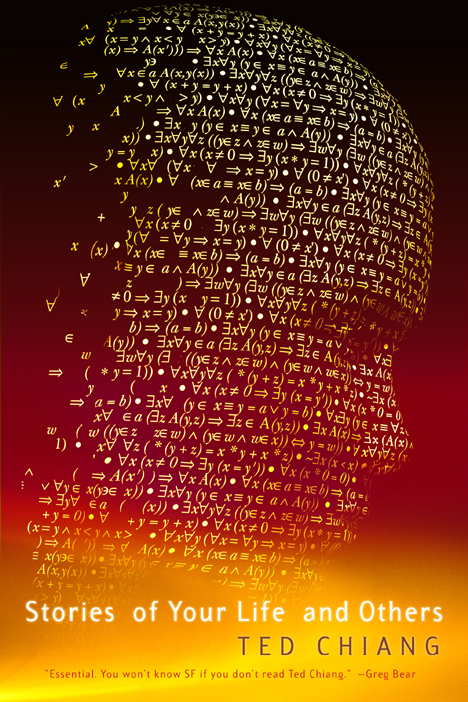I wrote this quite a while for someone else's site, but the hectic life of a publisher meant it got lost between the cracks I guess. And as this is about one of the best books I've read in recent years, I didn't want to let my words go to waste. So here I am, talking about Ted Chiang's collection of short stories Stories Of Your Life & Others.
- - -
Most so-called science fiction would be better named technology fiction - it tells stories about the possible uses of the physical sciences; about the amazing or dreadful things that we could do with science, and about how society and individuals might respond.
But science is more than cool technology - it's ideas. It is a way of looking at the world, and as such it is related to logic and mathematics and small-p philosophy, even to religion. Of course some people would say that science is the correct way of looking at the world, which is a tremendously reassuring argument if their job is to keep aircraft in the sky. It’s a somewhat curious one though, if their job is to write or comment on imaginative fiction…
Several of the fictions in Ted Chiang's brilliant collection Stories Of Your Life And Others take as their starting point 'untrue' ways of looking at the world: Biblical cosmology in The Tower of Babel; golems and Victorian science in 72 Letters; fundamentalist Christian beliefs in Hell Is The Absence of God, in which angels periodically descend to earth and Hell is sometimes visible through the ground. What distinguishes these stories from fantasy is both the rigorous, logical way Chiang develops his ideas, and the fact that the characters in the stories are like scientists, trying to understand the rules of their world. This is science fiction about the process of science as much as the result.
A second group of stories in the collection are about the limitations of science, as we currently understand it: The Evolution of Human Science suggests a future where science has advanced far beyond the ability of humans to actually comprehend; Division by Zero is about what it would mean, both to science and an individual, to find out that mathematics is inconsistent (which Godel has proved we can’t rule out).
If all this sounds too highfalutin and dry, then rest assured there are aliens and assassins and meta-humans; there are people with super intelligence or their ability to see beauty medically removed. The human dilemmas in the foreground of the stories are beautifully interwoven with the sci-fi ideas behind them, and it's this that makes the collection so special.
On first reading, the title story seems the stand-out; it takes as its starting point the science fiction staple of first contact with alien beings, but uses it to tell an all too human story about loss and memory. Its main character is a linguist who is attempting to decipher the alien's language, which is radically different to any human language. In between we do, as the title promises, learn the story of her life: her marriage, her divorce, the death of her daughter. She begins to understand that the aliens' language it is based on a radically different way of viewing time and cause and effect to our own, and this perspective gives her, and us, a radically different view of the story of her life she has been telling. Again, emerging from the story's scientific speculation is not arid theory, but a quietly devastating conclusion that left me thinking about it for days afterwards.
Simply put, this is one of the best science fiction short story collections I've ever read. Too often, intellect and emotion are presented as opposites but in Chiang's beautifully controlled stories the opposite is true. Highly recommended.
